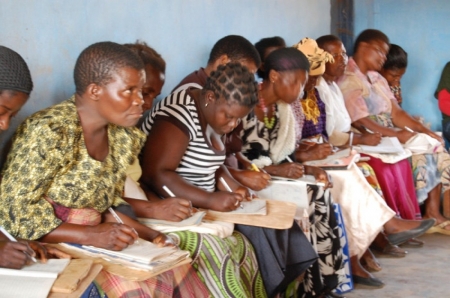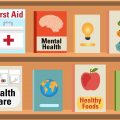Adult education is defined as a practice in which adults engage in systematic and sustained self-educating activities in order to gain new forms of knowledge, skills, attitudes, or values. It can mean any form of learning adults engage in beyond traditional schooling, encompassing basic literacy to personal fulfillment as a lifelong learner. Research gate defines Adult education as a practice in which adults participate in methodical and organized activities through which they can facilitate their understanding and learning.
Adult education programs are generally continuing education programs for those older than standard high school or college age. Most commonly, this is an adult who would like to earn a first certificate, become specialized in a particular technical or business skill in order to advance their career, return to or begin a degree program, or simply take a class on a topic they are interested in.
History of Adult education in Nigeria
Adult education in Nigeria has a long history. As far back as the 14th century, itinerant Islamic scholars and traders in the Muslim north of the country taught Arabic literacy through the study of the Koran. Later, Christian missionaries brought Western education to parts of southern and central Nigeria. This education, however, was essentially selective and designed with the specific goal of becoming literate in order to study the scriptures. In the 20th century, deliberate efforts were made by the British colonial government to provide some adult education in Nigeria. In its 1925 memorandum on Education Policy in British Tropical Africa, the British Colonial Office recommended the implementation of an adult education programme in African countries. Actual implementation of adult education in Nigeria started in 1944 and by 1946, a national literacy programme was well under way, although due to poor implementation it had limited success.
Nigeria attained independence in 1960 and literacy efforts in Nigeria received a boost when UNESCO supported the establishment of an Adult Literacy Institute in Ibadan in 1965. In 1971, the Nigerian National Council for Adult Education (NNCAE) was set up, becoming a “voice” for adult education practice in Nigeria. It recorded dramatic achievements within a short span of time, becoming a force to reckon with in terms of the planning, implementation and evaluation of adult and non-formal education programmes. In particular, the NNCAE played a leading role in driving aggressive campaigns and advocacy at government and university levels in order to ensure that adult education. The establishment of the Nigerian National Commission for Nomadic Education in 1989, created wider opportunities for an estimated 9.3 million nomads living in Nigeria to acquire literacy skills.
What are the advantages of adult education?
The significant role accorded adult education in the 2030 Agenda for Sustainable Development adopted at the United Nations Sustainable Development Summit (New York, September 2015) for the promotion of social development, sustained and inclusive economic growth, environmental protection and the eradication of poverty and hunger led to the call for the setting up of a University for adult education in Nigeria. Adult education has always been an important part of the education system in the Nigeria, recently, the EU, UN enrolled over 22,000 for adult education in Ebonyi alone. There are numerous advantages to adult education. Learning after secondary school as a mature aged student allows adults to develop valuable skills to improve career prospects and expand their professional knowledge. Developing literacy and numeracy skills in adulthood also gives individuals a better ability to reach their full potential. Many adult students gain additional confidence in their academic skills after pursuing adult education. It also teaches students valuable skills that can be put into action in a wide range of situations. The confidence and aptitude gained with adult education is valuable both in and out of the workplace.
Implementation of Adult Education.
According to the 2008 Global Monitoring Report, the most recent data for Nigeria shows an adult literacy rate of 69 % (78 % for men and 60 % for women). More than 22 million people are illiterate, 65 % of whom are women. None of the literacy efforts attempted in Nigeria so far have produced the desired results and millions of people are still being denied access to literacy because of a lack of effective education policies. Implementing adult literacy interventions is a complex process that includes several areas for consideration. Adult educators are often unfamiliar with evidence-based literacy strategies, and adult students often have great needs in literacy instruction and intervention. Adult education students need extensive support due to their life circumstances (newcomers, lack of prior academic success, need credentials for job/ career advancement). Positive outcomes for adult education students may lead to improved outcomes such as secondary and postsecondary credential attainment, employment, income, and family literacy.
The major causes of adult illiteracy in Nigeria can be summarized as:
- Problems in primary education (low enrolment rates, high dropout rates, inadequate facilities, poor teaching/learning materials, irrelevant curriculum);
- Poor enrolment rates in adult literacy programs;
- High drop out rates linked both to economic problems which force adult learners to abandon classes in favor of income-generating activities and to problems relating directly to the adult literacy program such as lack of relevance, funding issues and low morale among adult literacy instructors;
- Literacy instructors not properly trained in facilitation skills and gender awareness;
- The exclusion of women from adult education programs;
- Higher drop-out rates among women due to irrelevant curricula and competing demands;
- Poor access to adult education for “hard” to reach communities, such as nomads, fishermen and pastoralists;
- Failure to sustain literacy rates due to poor resources, including equipment, material and teachers, donor dependency and a negative perceived value of education;
- A poor literate environment that means that literacy skills are not maintained in the long term.
Adult Education and Health
In the past few decades, we have learned much about how many people are affected by low literacy skills, and how such skills are related to poorer health outcomes. Professionals working in both health and education can benefit by knowing the importance of this relationship and by becoming familiar with examples of how research in this field can be used to improve their practice. Health professionals have come to realize that health policy should be directed at reducing health inequalities, and that education of the public is the key to addressing complex health determinant. The vision is of individuals and communities who come together to learn from one another, to jointly identify issues of concern to their health and well-being, and to decide on the appropriate plan and actions to address these issues.
A British study based on a survey of people short-listed for adult learning awards, found that almost nine out of ten reported positive emotional and mental health benefits, albeit among what is clearly a rather select sample, another study found that four-fifths of learners aged 51–70 reported a positive impact on such areas as confidence, life satisfaction or their capacity to cope provides further support for this view, as do the findings of the AONTAS study of community education. In Britain, there is also experience from projects involving health providers in referring selected patients to learning opportunities.





